- Richard Strauss. Oper in two acts. 1927.
- Revised for performance in Salzburg in 1933.
- Libretto by Hugo von Hofmannsthal.
- First performance at the Staatsoper, Dresden, on 6th June 1928.
CHARACTERS
| Helena (Helen of Troy), wife of Men | soprano |
| Menelas (Menelaus) | tenor |
| Hermione, their daughter | soprano |
| Aithra, a sorceress, daughter of an Egyptian king | soprano |
| Altair, a nomad chieftain | baritone |
| Da-ud, his son | tenor |
| The Omniscient Sea-shell | contralto |
| Two Servants of Aithra | soprano & mezzo-soprano |
| Three Elves | two sopranos & contralto |
Menelaus has taken part in the sacking of Troy and has killed the Trojan prince Paris, seducer of his wife Helen. On his way home he determines to sacrifice Helen, to expiate the bloodshed she has caused. The opera opens in Egypt, where the sorceress Aithra laments the absence of her lover, the sea-god Poseidon. An oracular Sea-shell tells her of the murderous intentions of Menelaus, and she conjures a storm that brings the couple to her palace. By her magic she deludes Menelaus into thinking that the Helen who was abducted to Troy, whom he now is made to imagine that he has killed, is not the real Helen, but a wraith. In the second act Menelaus is jealous of the young Da-ud, son of the nomad chief Altair, and kills him, while they are out hunting. It is the magic of Aithra that eventually reconciles Menelaus and Helen. He had been deluded by a potion of forgetfulness, but now he is given a potion of remembering, and accepts Helen as she is.
Hugo von Hofmannsthal’s libretto makes use of an ancient legend, stemming from the sixth-century poet Stesichorus, repeated by Euripides in his play Helen, referred to by Herodotus and Plato, and treated in a poem by the modern Greek poet Seferis. In this version of the story of Troy, the true Helen had never been seduced by Paris but had been kept safe in Egypt, while Troy entertained a ghost. Strauss made changes in the second act in 1932 for production at the Salzburg Festspielhaus in the following year. The oracular Sea-shell and the appearance of Bedouin may be attributed to Strauss and Hofmannsthal. Excerpts that might be heard in the concert hall include Helen’s second-act Zweite Brautnacht (Second wedding-night).
 Click here to download the Libretto
Click here to download the Libretto![STRAUSS, R.: Ägyptische Helena (Die) [Opera] (Rysanek, Kupper, Aldenhoff, Uhde, Holm, Bavarian State Opera Chorus and Orchestra, Keilberth) STRAUSS, R.: Ägyptische Helena (Die) [Opera] (Rysanek, Kupper, Aldenhoff, Uhde, Holm, Bavarian State Opera Chorus and Orchestra, Keilberth)](https://cdn.naxos.com/sharedfiles/images/cds/hires/c424962i.jpg)
![STRAUSS, R.: Arabella [Opera] (Várady, Fischer-Dieskau, Donath, Berry, Bavarian State Opera Chorus and Orchestra, Sawallisch) STRAUSS, R.: Arabella [Opera] (Várady, Fischer-Dieskau, Donath, Berry, Bavarian State Opera Chorus and Orchestra, Sawallisch)](https://cdn.naxos.com/sharedfiles/images/cds/hires/c169882h.jpg)
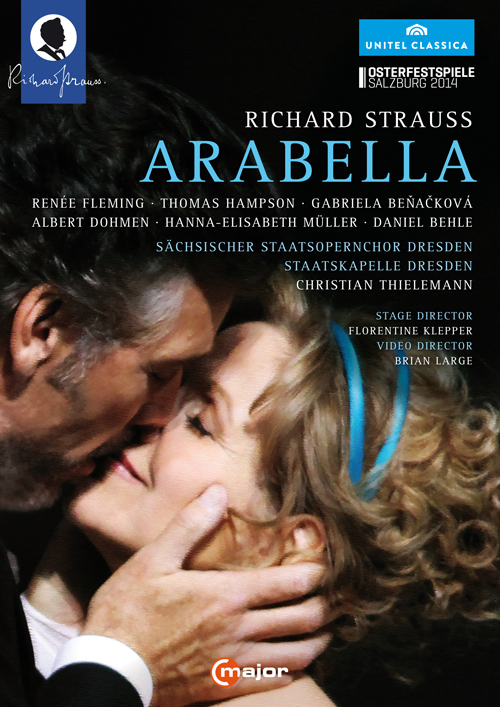
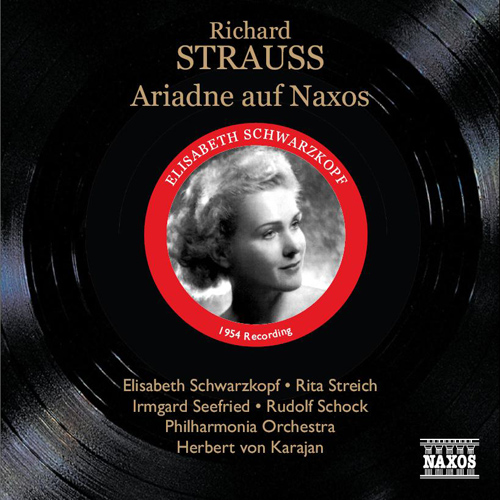
![STRAUSS, R.: Ariadne auf Naxos [Opera] (Glyndebourne, 2013) (NTSC) STRAUSS, R.: Ariadne auf Naxos [Opera] (Glyndebourne, 2013) (NTSC)](https://cdn.naxos.com/sharedfiles/images/cds/hires/oa1135d.jpg)
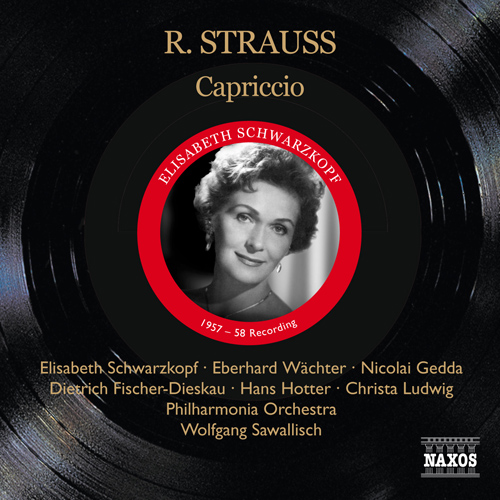

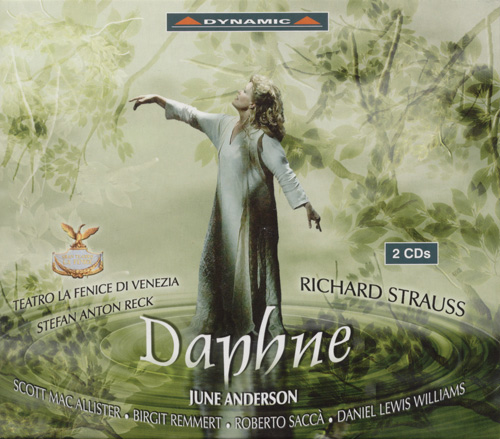
![STRAUSS, R.: Elektra [Opera] (Varnay, Madeira, Zadek, Deutschen Oper am Rhein Chorus and Orchestra, Quennet) STRAUSS, R.: Elektra [Opera] (Varnay, Madeira, Zadek, Deutschen Oper am Rhein Chorus and Orchestra, Quennet)](https://cdn.naxos.com/sharedfiles/images/cds/hires/c661041b.jpg)

![STRAUSS, R.: Feuersnot [Opera] (Cunitz, Barth, Cordes, Engen, Ostertag, Proebstl, Bavarian State Opera Chorus, Bavarian State Orchestra, Kempe) STRAUSS, R.: Feuersnot [Opera] (Cunitz, Barth, Cordes, Engen, Ostertag, Proebstl, Bavarian State Opera Chorus, Bavarian State Orchestra, Kempe)](https://cdn.naxos.com/sharedfiles/images/cds/hires/c423962i.jpg)
![STRAUSS, R.: Frau ohne Schatten (Die) [Opera] (S. Gould, Nylund, Herlitzius, W. Koch, Stemme, Vienna State Opera Chorus and Orchestra, Thielemann) STRAUSS, R.: Frau ohne Schatten (Die) [Opera] (S. Gould, Nylund, Herlitzius, W. Koch, Stemme, Vienna State Opera Chorus and Orchestra, Thielemann)](https://cdn.naxos.com/sharedfiles/images/cds/hires/c991203.jpg)
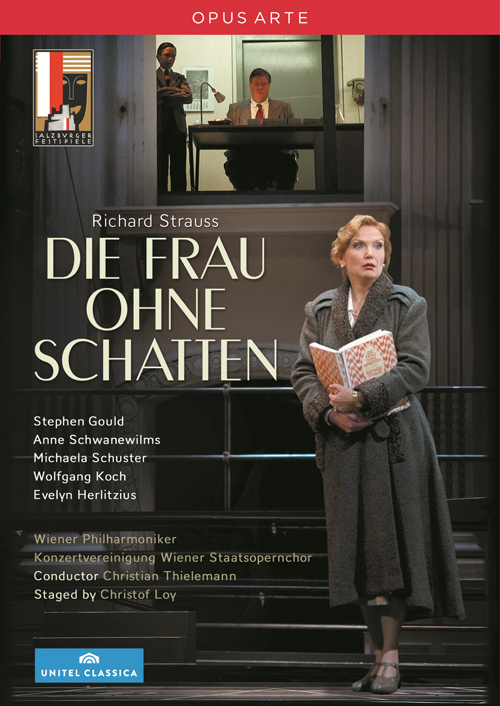
![STRAUSS, R.: Liebe der Danae (Die) [Opera] (Kupper, Felbermayer, Schöffler, Gostic, Vienna Philharmonic, Krauss) (1952) STRAUSS, R.: Liebe der Danae (Die) [Opera] (Kupper, Felbermayer, Schöffler, Gostic, Vienna Philharmonic, Krauss) (1952)](https://cdn.naxos.com/sharedfiles/images/cds/hires/c292923d.jpg)
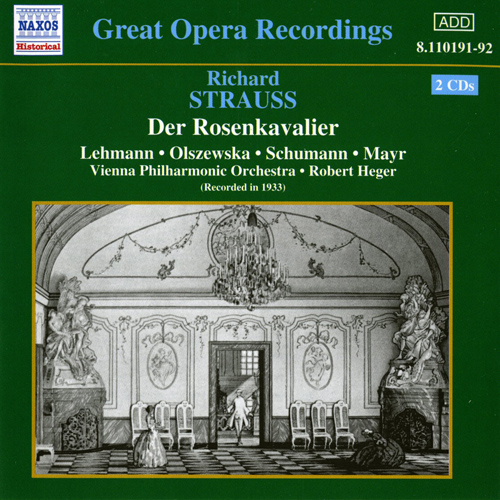

![STRAUSS, R.: Salome [Opera] (Goltz, Patzak, Krauss) (1954) STRAUSS, R.: Salome [Opera] (Goltz, Patzak, Krauss) (1954)](https://cdn.naxos.com/sharedfiles/images/cds/hires/8.111014-15.jpg)
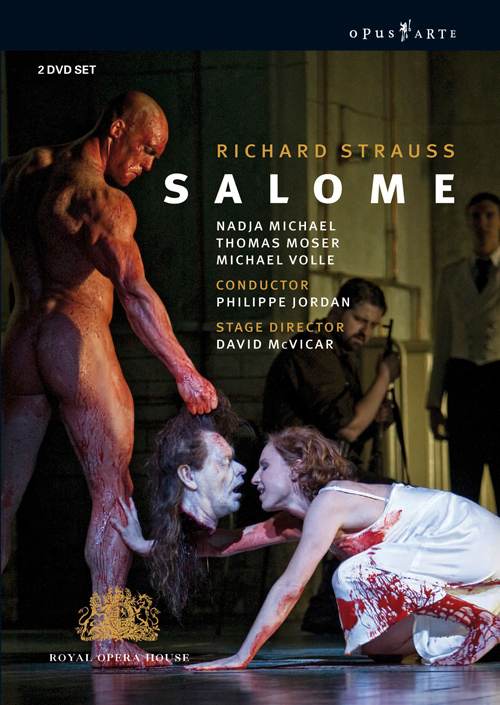
![STRAUSS, R.: Schweigsame Frau (Die) [Opera] (Grist, Mödl, McDaniel, Grobe, Böhme, Bavarian State Opera Chorus and Orchestra, Sawallisch) STRAUSS, R.: Schweigsame Frau (Die) [Opera] (Grist, Mödl, McDaniel, Grobe, Böhme, Bavarian State Opera Chorus and Orchestra, Sawallisch)](https://cdn.naxos.com/sharedfiles/images/cds/hires/c516992i.jpg)